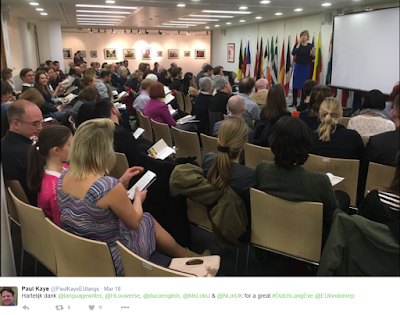2016 has proved a busy year for
blogging. Unfortunately, any review of 2016 is not complete without a mention
of Brexit. I think it is especially important for us to stress to current and
potential clients how much we value our European connections.
The end of 2016 is fast approaching,
so let’s recap on the year’s most popular blogs as we did in 2015. The most
popular posts were the lists of largely European conferences and events. Many
readers commented on how useful they found them. Thank you!
Mixing Business and Culture
Cultural posts are very popular. They
are part of my marketing strategy - not a whim or a travel log. They reach out
to both clients and colleagues. Cultural awareness is an essential part of
translation. It is also an easier route to engage clients about translation
issues.
When working with France, it is
important not just to focus on business aspects. I noted with interest recently
that a top tip for the British working with France is to:
‘Show an interest in French culture, history
and society’
Le piège de la ressemblance / Light at the End of the Tunnel
French Chamber of Commerce in Great Britain
French Chamber of Commerce in Great Britain
My blog is not just for France or French-speaking countries. I never cease to be amazed by my blog’s analytics and
the number of countries that it reaches worldwide. It’s not all about high
numbers. Sometimes a blog with just 40 readers can be more effective in
reaching new clients than one with hundreds of readers. That said, here are the
most popular blogs of 2016:
Top 3 Event lists:
Other Blogs:
Photo blog of visit to Comic Art Museum in Brussels. Status of comics in Franco-Belgian culture. Tintin, Asterix, the Smurfs. Humour of 'How to become Belgian'.
Post from 21 February 2016
Dutch language and culture taster class at EU Representation in the UK's home in London. A highly entertaining and humorous event.
Post from 18 March 2016
Reflections from music and robots to machine translation. Why you should choose a professional human translator for creative marketing translations.
Post from 3 April 2016
Review of the 1st European Conference bringing freelance translators and language service providers together in Barcelona. Focus on communication, relationships, growth and technology.
Post from 18 February 2016
Commemorative display at the RHS Chelsea Flower Show. Created for Anzac Day, remembering the Battle of Verdun and Somme Centenaries and vigils.
Post from 29 May 2016
Transport for London's use of Big Data. London's transport challenges, data collection, planning and overcrowding. Future plans for open data and a personalised data service for passengers.
Post from 25 April 2016
Reflections on Brexit on the centenary of the Battle of the Somme.
Post from 30 June 2016
Happy reading!
























